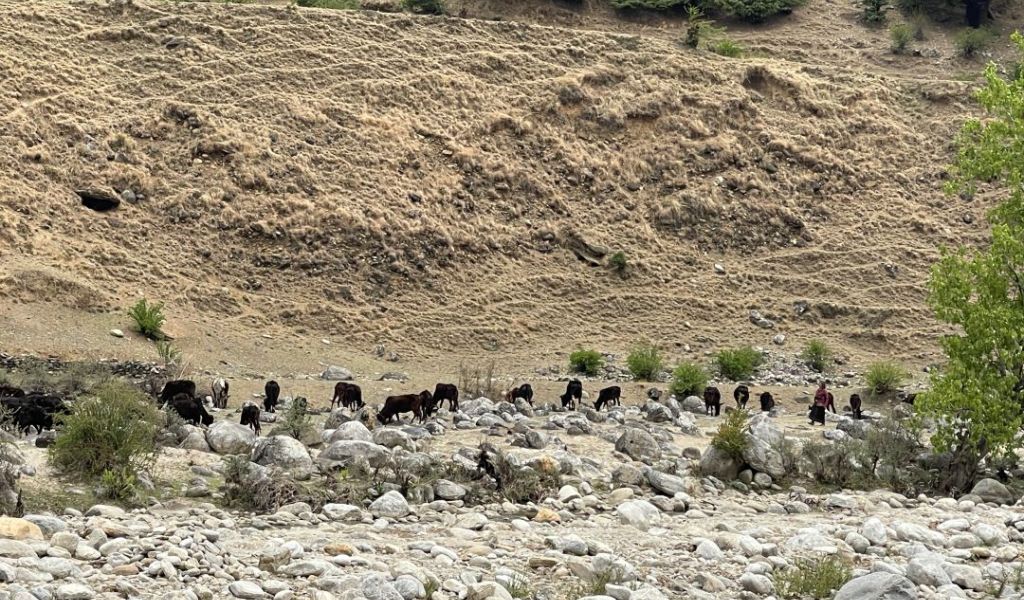WISIONS Innovation Lab in Nepal

WISIONS Innovation Lab
WISIONS, as an initiative of the Wuppertal Institute, has been actively promoting the transition to sustainable energy systems in the global south since 2004. The aim is to enable people and communities to generate energy in a sustainable way and to use it productively for social and economic development. To this end, the WISIONS initiative applies the Innovation Lab approach developed by the Wuppertal Institute to promote the development and broad application of innovative solutions in the field of sustainable energy access.
WISIONS Innovation Lab in Nepal
The WISIONS Innovation Lab is being implemented in the Baglung and Jumla districts of Nepal, where the mountainous terrain presents long-term challenges to grid expansion. In this context, decentralized renewable energy systems have the potential to be significant drivers of local change, enhancing economic, health, social and environmental resilience. The overarching goal is to strengthen the livelihoods of the rural population through the application of appropriate sustainable energy solutions; for example, micro-hydropower, solar Photovoltaic, or biomass. These are combined with sustainable landscape practices, such as agroforestry, community forest management, and sustainable watershed management. The Lab will build on the lessons learned from earlier successful projects and knowledge exchanges supported by the WISIONS initiative in Nepal.
Objectives
The primary objective of Innovation Lab Nepal is to strengthen the livelihoods of rural populations by applying decentralized renewable energy solutions in combination with sustainable landscape management practices. To achieve this, a multi-stakeholder process involving private suppliers of technology and services, as well as academics and researchers, will be established.
The intention is to leverage the different expertise and knowledge of consortium stakeholders to:
- Identify the development opportunities and challenges facing the involved rural communities.
- Assess which renewable energy and landscape management solutions can effectively harness these opportunities.
- Design, implement and evaluate transformative actions that unlock the full potential of the most promising energy and landscape solutions.
To this end, the WISIONS initiative applies the Innovation Lab approach, developed by the Wuppertal Institute, to promote the development and broad application of innovative solutions in the field of sustainable energy access. The involvement of private and public sectors, university networks, start-ups and other stakeholders plays an important role. The implementation of the Innovation Lab approach comprises a total of four phases.
- The first phase serves to analyze the initial situation and to prepare and define the Innovation Lab.
- The second phase is concerned with the development, planning and implementation of training modules and the co-design of transformative measures.
- In the third phase, the developed measures are implemented.
- In the fourth phase, co-evaluations are carried out and up-scaling strategies are developed.
The scarcity of sustainable livelihood opportunities in rural areas of Nepal is a key factor driving the migration of young individuals to urban centers and abroad. We predict that the widespread use of decentralized renewable energy and sustainable landscape management in rural communities will generate employment opportunities in Small and Micro Enterprises both on and off farms, increase food security through agricultural activities, and enhance the resilience of the natural ecosystems of their landscapes, particularly in the Himalayan forests.
Overall, Innovation Lab Nepal aims to bring about systemic change to expand opportunities for individuals to forge prosperous and fulfilling economic lives in rural Nepal while also addressing global sustainability challenges. A key component of this project is the establishment of a multi-stakeholder alliance, fostering collaboration among diverse participants, including local community-based organizations, local and national public actors, private technology and service providers, and academics and researchers.

